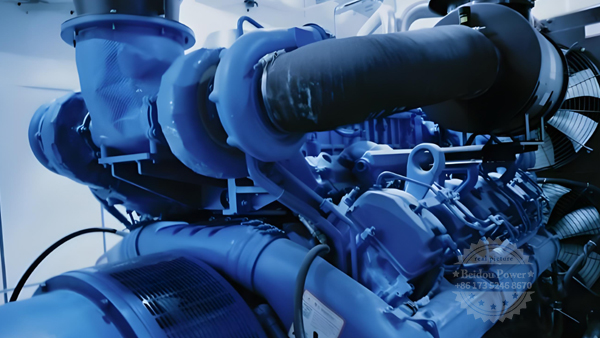Diesel engine runaway refers to the fault phenomenon where the engine speed is out of control, far exceeding the rated speed, the engine vibrates violently, makes a rumbling sound, and a large amount of black or blue smoke is emitted from the exhaust pipe. Flying cars not only cause damage to components but also endanger the personal safety of the operators, which should be highly valued by the maintenance personnel.
There are many reasons for diesel engine runaway, but they can basically be divided into two categories: the first is fuel oversupply; The second is the burning of engine oil. Although both types of flying cars exhibit overspeed operation of diesel engines, there are differences in their specific manifestations. When diesel oversupply causes runaway, black smoke comes out of the exhaust pipe. Generally, it can be stopped by cutting off the fuel supply. When engine oil causes a diesel engine to run fast, blue smoke comes out of the exhaust pipe. At this time, merely cutting off the fuel supply cannot effectively stop it. It is necessary to simultaneously cut off the air supply and rapidly reduce the pressure to stop it. The causes of diesel engine runaway and their treatment methods are described as follows.
The reasons for diesel engine runaway
The reasons for diesel engine runaway caused by oversupply of diesel :① The ball joint of the plunger adjustment arm or the gear rod adjustment arm has not entered the adjustment fork groove, and the plunger is at the rated fuel supply position. ② The plunger of the oil pump doesn’t rotate smoothly. This is a common cause of diesel engine runaway. The plunger is at the rated oil supply position, and the governor cannot be pulled, resulting in an increase in the rotational speed. As a result, the governor fails to control the oil volume. The reasons for the plunger not rotating smoothly include: the plunger being damaged during assembly; There is dirt in the oil pump, allowing impurities to enter the gap of the plunger pair. When the oil outlet valve seat was tightened, the torque was too large, causing the plunger sleeve to deform. The gasket on the positioning screw of the plunger sleeve is too thin. The positioning screw presses against the plunger sleeve, causing it to deform. The locating screws of the plunger sleeve are too long or bent, and the plunger sleeve is jammed during assembly. When the fuel injector wears out, a large amount of return fuel connected to the intake pipe is drawn into the cylinder, resulting in excessive fuel in the cylinder. When installing the governor, too much grease was applied to the steel balls and the grease was too viscous, making it difficult for the steel balls to fly away when the rotational speed increased. ⑤ The gear rod and gear ring have no marks or are installed incorrectly, and the plunger is installed in reverse. ⑥ Low fuel injection pressure and excessive fuel supply to the cylinder. ⑦ The pull rod is stuck with the moving part of the governor. ⑧ Improper debugging of the governor. The reasons are as follows: The operator deliberately increases the preload of the speed regulation spring of the single-cylinder diesel engine; The operating point of the governor of Pump No. 2 is too high, resulting in a high oil stop speed or inability to stop the oil. There is too much lubricating oil or the viscosity is high in the governor.
(2) Reasons for diesel engine runaway caused by engine oil :① There is too much engine oil in the air filter, which is sucked into the cylinder. ② There is too much engine oil in the oil pan, which spills into the cylinder during operation. ③ The crankcase vent is blocked, the air pressure increases, and the engine oil is forced into the combustion chamber. ④ A horizontal diesel engine is severely tilted, causing engine oil to flow into the valve chamber. When the gap between the valve and the valve guide is too large, the oil is drawn into the combustion chamber. ⑤ When the piston rings are severely worn, the clearance of the cylinder liner is too large, or the openings of the piston rings are aligned, a large amount of engine oil seeps into the combustion chamber. The engine oil is too thin and can easily seep into the combustion chamber. The reasons for the engine oil being too thin include: diesel leaking into the oil pan; The diesel engine is too hot. The quality of the engine oil does not meet the requirements. ⑦ The return oil holes on the oil ring and piston are blocked, causing engine oil to seep into the combustion chamber.
For more questions about the generator set, please call the Beidou Power team. More than ten years of professional production and sales of power generation equipment experience, more professional engineer team to serve you, choose Beidou power is to choose rest assured, welcome on-site factory inspection.
Post time: May-30-2025

